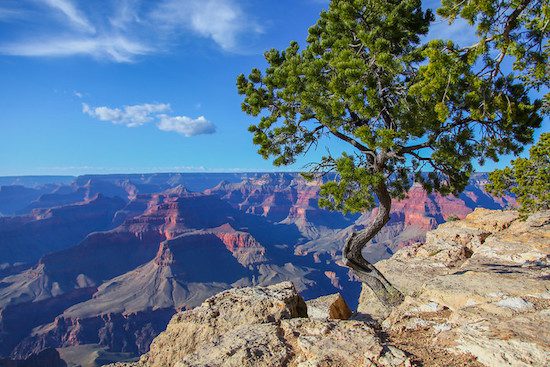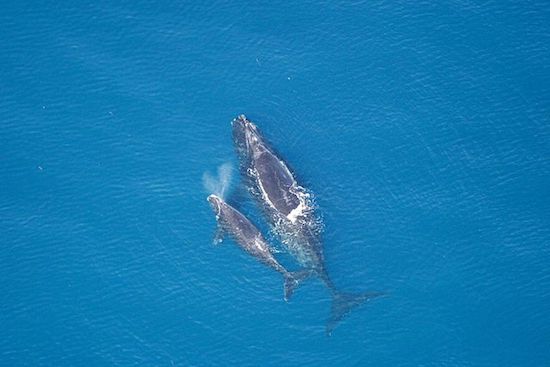


CREDO Action: Here’s a frightening idea: Grand Canyon, sponsored by Coca-Cola. Yosemite, brought to you by McDonald’s. Acadia, a subsidiary of Aramark. Under a scheme hatched by former disgraced Interior Secretary Ryan Zinke, that could be the eventual fate of America’s national parks. Reporters recently uncovered shady plans between the Interior Department and national park profiteers, the RV and hospitality industries, and enemies of public lands to privatize national park campgrounds, allow commercialized food trucks and other services at parks, limit benefits for seniors, increase prices, and expand infrastructure that could harm wildlife habitat. This plan would be a massive giveaway to corporate interests and Trump donors who stand to profit from national park privatization. Jerry Jacobs Jr., the billionaire chairman of Delaware North, a massive food service and concessionaire with deep interests in America’s national parks, sits on the “Made in America” committee, donated at least $167,700 to Trump and stands to make massive profits if the Interior Department follows through with this scheme.
>>>Tell the Department of the Interior to stop the privatization of national parks.
Organic Consumers Association: Industrial ocean fish farms endanger both human and environmental health, yet the Trump administration is pushing for aggressive expansion of this dirty industry. Raising non-native and/or genetically modified fish in ocean water fish farms can disrupt natural ecosystems when the facilities spread disease to wild fish and release toxic, untreated fish waste and pharmaceutical drugs into the marine environment. Farmed fish also have more toxic chemicals, including pesticides and antibiotics, and contain fewer nutrients than wild-caught fish.
>>>Urge Congress to support the “Keep Fin Fish Free Act” to ban industrial ocean fish farms.
Rainforest Rescue: Indonesia’s Tapanuli orangutan was only identified as a distinct species two years ago, and it is now on the list of the 25 most endangered primates, as a Chinese hydropower project threatens to destroy the tiny habitat of the remaining 800 apes. China’s state-owned Sinohydro Group plans to build a 510 MW hydroelectric dam in Batang Toru forest on the Indonesian island of Sumatra. The dam’s reservoir would flood the heart of the orangutans’ habitat. Power lines and access roads—and the loggers and settlers that roads inevitably attract—would fragment the surrounding area, cutting individual populations of the reclusive apes off from one another.
>>>Urge the Indonesian government to save the Tapanuli orangutan from extinction.
Cause for concern…

- Nearly 75% of 184 Paris Agreement pledges found insufficient to slow climate change (Stuart Braun, Deutsche Welle)
- Greta Thunberg accuses rich countries of “creative carbon accounting” (The Economist)
- Rice yields plummet and arsenic rises in future climate-soil scenarios (SeedWorld)
- A decade after Mars and other chocolate makers vowed to stop rampant deforestation, the problem has gotten worse (Steven Mufson, The Washington Post)
- Food waste in tourism is a bigger issue than previously thought (University of Eastern Finland, ScienceDaily)
- Capitalism is undermining animal welfare (Catherine Rowett, Bright Green)
- Elephant collapses and dies of ‘exhaustion’ after carrying tourists on safari in sweltering heat in Sri Lanka (Nick Enoch, Daily Mail)
- Live pigs and dogs used as crash test dummies in China (Alix Coe, Raise Vegan)
- Prejudice and violence against vegetarians and vegans (Gordon Hodson, Psychology Today)
Round of applause…

- Federal judge restores ban on fishing net that entangles endangered North Atlantic right whales (Associated Press)
- What we can learn from Indigenous land management (Flinders University, ScienceDaily)
- Seoul closes the doors on last remaining dog meat plant (Madison Dibble, Washington Examiner)
- FDA under pressure to end drug research on animals, starting with dogs (Shen Wu Tan, The Washington Times)
- Student activists raise awareness about cruel Canada Goose practices (John Monkovic, The Cornell Daily Sun)
- Rehabilitated loggerhead turtle heads back to sea four years later (Daily Sabah)
- The world’s first vegan zero-waste restaurant wants to set a new benchmark for sustainable hospitality (Elizabeth Rushe, Forbes)
- Market for vegan egg substitutes set to explode (Vegconomist)
- Vegan side dishes to bring to Friendsgiving—complete with YouTube tutorials (PETA)
- Pet safety tips for cold weather (Sally Jones, Canine Journal)
Parting thought…
“The interdependence of humans, animals, and the habitats we share form a triad of compassion on this beautiful blue-green planet Earth. This is indisputable. Without engaging in acts of compassion that consider each of these three aspects, we risk losing everything.” —Sarah C. Beasley
Earth | Food | Life (EFL) explores the critical and often interconnected issues facing the climate/environment, food/agriculture and nature/animal rights, and champions action; specifically, how responsible citizens, voters and consumers can help put society on an ethical path of sustainability that respects the rights of all species who call this planet home. EFL emphasizes the idea that everything is connected, so every decision matters.
Click here to support the work of EFL and the Independent Media Institute.
Questions, comments, suggestions, submissions? Contact EFL editor Reynard Loki at [email protected]. Follow EFL on Twitter @EarthFoodLife.